#Empowering Marginalized Communities
Explore tagged Tumblr posts
Text
Citizen Support Centers Transform Rural Jharkhand: Jean Dreze
NSKs Bridge Gap Between Government Services and Villagers Jharkhand’s Nagarik Sahayata Kendras revolutionize rural governance, empowering marginalized communities by facilitating access to essential services across 76 blocks. RANCHI – Nagarik Sahayata Kendras in 76 Jharkhand blocks are transforming rural governance, facilitating access to essential services for marginalized communities. The…
#राज्य#citizen support centers#digital divide rural India#empowering marginalized communities#government service access#MNREGA Implementation#Nagarik Sahayata Kendras#Rural Development Jharkhand#rural governance improvement#social welfare schemes#state#streamlining bureaucratic processes
0 notes
Text

Skill Development Program - Empowering Marginalized Communities
ORHCW aims to provide vocational training and resources to marginalized groups, including persons with disabilities, enabling them to gain valuable skills and access economic opportunities. Through tailored education and support, this initiative seeks to break barriers, empower individuals, and foster inclusivity, ultimately promoting equality and sustainable development within communities.
0 notes
Text
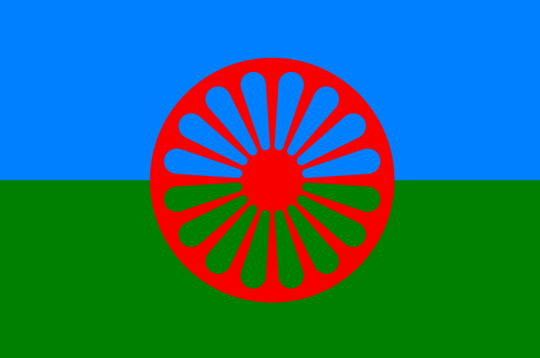
BILD Urheber: AdiJapan
#Roma Activism#Antiziganism Awareness#Education Advocacy#Discrimination Fighting#Community Empowerment#Sinti and Roma Rights#Cultural Heritage Preservation#Hannover Integration#Diversity Acceptance#Empowering Marginalized Communities#State Treaty Advocacy#Youth Empowerment#Prejudice Combat#Inclusivity Promotion#Empowering Future Generations#Sinti und Roma#Antiziganismus#Bildungschancen#Integration#Community#Rassismus#Hannover·#Empowerment#Bildungsarbeit#Vorurteile#Aktionsplan#Engagement#Workshop#Soziale Teilhabe#Roma-Community
1 note
·
View note
Text
oop. crazy how many people i have unfollowed/blocked today for the cyclical and asinine sentiment along the lines of "well leftists are you HAPPY now????"
girl we've done this 3 elections in a row. definition of insanity to still be blaming this on us especially when the numbers do not support your accusations. like we voted for the fucking war criminals and you STILL lost.
#we will never improve/revolutionize this system because people cannot get their heads out of their asses enough to realize:#a. we have much bigger problems than these candidates#b. the structure of our government is not immutable nor is the US itself guaranteed any sort of longevity#c. the way we see ourselves and understand our politics and international influence is so wildly different from int'l perspective/ Reality#babes this country is a joke. international law has been made into a joke. that should be much scarier to everyone than it is.#but because they can't imagine the violence regularly outsourced to brown people as possibly happening to us in the states#americans are completely satisfied with continuing to outsource that violence if it means we get normalcy#also the number of privileged ass white liberals posting shit along the lines of 'well you made your bed lay in it'#ah i see the mask comes off and the hood comes out!#i thought we were against victim blaming???? i thought we wanted to empower marginalized communities??#but not when those communities express concerns and principles outside the realm of democrat complacency#like babe what was the platform? what did you vote for?#the platform shrinks every year and i fear by next election it will simply be nonexistent#i wish i was optimistic about a leftist movement stepping in to fill the vacuum but........ 🫠#i just think things are going to get much worse before they get better (IF they get better)
5 notes
·
View notes
Text
A message from a few of the trans staff at Tumblr & Automattic:
We want trans people, and LGBTQ+ people broadly, to feel welcome on Tumblr, in part because we as trans people at Tumblr and Automattic want it to be a space where we ourselves feel included. We want to feel like this is a platform that supports us and fights for our safety. Tumblr is made brighter and more vibrant by your presence, and the LGBTQ+ folks who help run it are fighting all the time for this, for you, internally.
A few days ago, Matt Mullenweg (the CEO of Automattic, Tumblr’s parent company) responded to a user’s ask about an account suspension in a way that negatively affected Tumblr’s LGBTQ+ community. We believe that Matt's response to this ask and his continued commentary has been unwarranted and harmful. Tumblr staff do not comment on moderation decisions as a matter of policy for a variety of reasons—including the privacy of those involved, and the practicalities of moderating thousands of reports a day. The downside of this policy is that it is very easy for rumors and incorrect information about actions taken by our Trust & Safety team to spread unchecked. Given this, we want to clarify a few different pieces of this situation:
The reality of predstrogen's suspension was not accurately conveyed, and made it seem like we were reaching for opportunities to ban trans feminine people on the platform. This is not the case. The example comment shared in the post linked above does not meet our definition of a realistic threat of violence, and was not the deciding factor in the account suspension.
Matt thereafter failed to recognize the harm to the community as a result of this suspension. Matt does not speak on behalf of the LGBTQ+ people who help run Tumblr or Automattic, and we were not consulted in the construction of a response to these events.
Last year, the "mature" and "sexual themes" community labels were erroneously applied to some users' posts. An outside team of contractors tasked with applying community labels to posts were responsible for this larger trend of mislabeling trans-related content. When our Trust & Safety team discovered this issue (thanks largely to reports from the community), we removed the contracted team’s ability to apply community labels and added more oversight to ensure it does not happen again. In the Staff post about this, LGBTQ+ staff pushed to be more transparent but were overruled by leadership. The termination of a contractor mentioned in the original ask response was for an unrelated incident which was incorrectly attributed to this case. We regret that the mislabeling ever happened, and the negative impact it has had on the trans community on Tumblr.
Transition timelines are not against our community guidelines, and weren’t a factor considered by the moderation team when discussing suspensions and subsequent appeals. We do not take action against content that is related to transitioning or trans bodies unless it includes violations of the Community Guidelines.
When it comes to the experience of trans folks on Tumblr encountering transphobic content, and interacting with bigoted users, we understand and share your frustrations. Tumblr’s policies, and Automattic’s policies, are written to ensure freedom of speech and expression. We prohibit harassment as defined in our Community Guidelines, but we know that this policy falls short of protecting users from the wider scope of harmful speech often used against LGBTQ+ and other marginalized people.
Going forward, Tumblr is taking the following actions:
Prioritizing anti-harassment features that will empower users to more effectively protect themselves from harassment.
Building more internal tooling for us as Staff to proactively identify and mitigate instances of harassment.
Reviewing which of the tags frequently used by the trans community are blocked, and working to make them available next week.
We’re sorry for how this all transpired, and we’re actively fighting to make our voices heard more and prevent something like this from happening again in the future. We know firsthand that having to deal with situations like this as a Tumblr user is difficult, particularly as a member of an already frequently targeted and harassed community. We know it will take time to regain your trust, and we’re going to put in the work to rebuild it.
We appreciate the space we have been given to express our concerns and dissent, and we are thankful that Matt’s (and Automattic’s) strong commitment to freedom of expression has facilitated it.
We will continue to fight to make Tumblr safe for us all.
— This statement was authored by multiple trans employees of Tumblr and Automattic.
69K notes
·
View notes
Text
Support the Inclusive Democracy Act of 2023 (H.R.6643 / S. 3423)
An open letter to the U.S. Congress
576 so far! Help us get to 1,000 signers!
Despite his 34 felony convictions, Donald Trump has the wealth, connections, and privilege to ensure he doesn’t have to worry about his eligibility to vote this fall. But the millions of ordinary Americans currently disenfranchised by felony convictions aren’t so lucky. That's why, as your constituent, I urge you to co-sponsor and support the Inclusive Democracy Act of 2023 (H.R.6643 / S. 3423) to guarantee voting rights to ALL Americans. Right now, Jim Crow-style felony disenfranchisement laws deny voting rights to over 4.4 million Americans. The Inclusive Democracy Act of 2023 comprises a series of transformative measures that would end the broken system of felony disenfranchisement and empower marginalized communities: - Guaranteeing the right to vote in federal elections to all Americans who have criminal convictions. - Eliminating state-level barriers that prevent individuals with criminal convictions, whether they are incarcerated or have been released, from exercising their right to vote in federal elections. - Ensuring citizens in carceral settings have access to information about elections and candidates 29 Members of Congress have signed on as sponsors or co-sponsors of the Inclusive Democracy Act of 2023. If you haven’t already, please join your colleagues and add your name to that list. And if you’re already a co-sponsor – thank you, and please do everything you can to help pass this groundbreaking legislation into law.
▶ Created on October 14 by Jess Craven · 575 signers in the past 7 days
📱 Text SIGN PGODGR to 50409
🤯 Liked it? Text FOLLOW JESSCRAVEN101 to 50409
#JESSCRAVEN101#PGODGR#Inclusive Democracy Act#Voting Rights#Felony Disenfranchisement#Support Voting Rights#H6643#S3423#Vote For All#Empower Marginalized Communities#End Jim Crow Laws#Voting For Everyone#Voting Is A Right#Reform Voting Laws#Criminal Justice Reform#Restoration Of Voting Rights#Civil Rights#Access To Voting#Electoral Justice#Join The Movement#Sign The Petition#Advocate For Change#Fair Elections#Democracy For All#Voices For Change#Civic Engagement#Social Justice#Vote2023#Legislative Action#Congressional Support
1 note
·
View note
Text
And speaking of being black in majority-white spaces, here's something else I've learned first from my black family and then from direct experience:
I absolutely understand if you don't have the energy or ability to put yourself at risk and open yourself up to being the first [marginalized delographic] to do something or the only one to exist in a [empowered demopraphic] space, but also.
Sometimes that person does have to be you. Sometimes you have to do it for those who come after you. Sometimes you have to do it if you want that space to change.
A friend of mine has a husband who attends a country club. Formerly mostly populated by truly ancient racist ass white men as a Good Ol Boys Club, except... my friend's husband is not racist and does not like this behavior, but does like the perks of the country club. So he got his friends of color into the club, and is slowly taking over the club dynamic and politics with his significantly more diverse friend group. And the guys he brought in are A: very pleasant people and B: becoming official members and then bringing *their* friends in, and slowly they're pushing out the racist assholes that dominated the club not even a few years ago. Soon it will be a country club where the average color is mine and not that of milk.
Dobermans are an incredibly white, right-wing, racist- and nazi-dominated breed. It is a serious problem and a major reason that I am very incredibly choosey about my doberman contacts. I joke all the time that Fenris' breeder is amassing a black doberman owner army to chase out all of the white racists, and a queer doberman army to chase away the homophobes and transphobes, and it's only like. Half of a joke. Because the more of us that she collects and are making waves on the breed, the more others behind us will know that if nothing else we'll keep them safe from Those Jerks. There was a woman in a hijab at the last UDC event I went to- 10 years ago I genuinely don't think she would have lasted more than an hour or two without someone making it very clear that she was not welcome. I certainly had people open their mouths to say something and then my more experienced, more accomplished friends would stare and wait and the offender in question would shut their mouth and walk away.
If you're unhappy with the social or political climate of a community space you want to occupy, sometimes you do have to occupy it anyway and collect people who are like minded until you have a collective to start changing minds. And it sucks but like. Those are your options. Occupy the space anyway and make waves by refusing to budge, make your own space, or avoid it forever and miss out on something you wanted to do.
3K notes
·
View notes
Text
Empowering Marginalized Communities through Culture-Based Education: An Imperative for a Brighter Future
0 notes
Text
Achieving Global Peace and Justice: The Crucial Role of Goal 16 and Strong Institutions
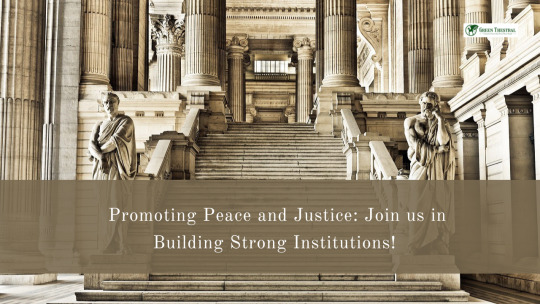
In an ever-changing and interconnected world, achieving peace and justice is of paramount importance for the well-being and progress of societies. Sustainable Development Goal 16 (SDG 16), aptly named "Peace, Justice, and Strong Institutions," recognizes the significance of establishing robust governance structures, promoting peaceful and inclusive societies, and ensuring access to justice for all. This article delves into the essence of Goal 16 and highlights its vital role in fostering peace, justice, and strong institutions worldwide.
Understanding SDG 16 and Its Significance
SDG 16, part of the United Nations' 2030 Agenda for Sustainable Development, holds significant importance in addressing some of the most pressing global challenges. It acknowledges the inseparable connection between peace, justice, and strong institutions as crucial foundations for sustainable development and the well-being of societies worldwide. By setting this goal, the United Nations aims to provide a comprehensive framework that guides countries in their efforts to create peaceful, just, and inclusive societies.
At its core, SDG 16 recognizes that without peace and stability, sustainable development becomes unattainable. Armed conflicts, political instability, and social unrest not only lead to immense human suffering but also impede progress in various areas such as education, health, and economic growth. By prioritizing peace, the goal acknowledges the urgent need to address the root causes of violence, prevent conflicts, and build societies that can thrive in an atmosphere of tranquility.
In addition to peace, justice is an essential pillar of SDG 16. It emphasizes the importance of establishing fair and effective legal systems that ensure equal access to justice for all individuals, regardless of their socio-economic background. Access to justice is not limited to formal legal processes but extends to broader aspects, such as addressing grievances, resolving disputes, and promoting human rights. By ensuring access to justice, societies can guarantee the protection of fundamental rights, reduce inequalities, and foster social cohesion.
Strong institutions form another critical aspect of SDG 16. These institutions encompass a wide range of entities, including governments, public administrations, judicial systems, and law enforcement agencies. They play a pivotal role in upholding the rule of law, promoting good governance, and ensuring accountability at all levels. Strong institutions provide a stable framework that enables countries to effectively respond to the needs of their citizens, protect human rights, combat corruption, and provide essential services. By strengthening institutions, countries can establish an environment conducive to sustainable development and the realization of the other Sustainable Development Goals.
SDG 16 outlines specific targets and indicators to guide countries in their efforts to achieve peace, justice, and strong institutions. These targets include reducing all forms of violence and related death rates, ending abuse, exploitation, trafficking, and all forms of violence against children, promoting the rule of law at the national and international levels, and significantly reducing corruption and bribery. Additionally, the goal aims to ensure responsive, inclusive, participatory, and representative decision-making processes, strengthen the capacity of institutions at all levels, and ensure public access to information and fundamental freedoms.
To achieve these targets, countries need to develop comprehensive strategies, policies, and action plans tailored to their specific contexts. This requires multi-sectoral collaboration involving government entities, civil society organizations, the private sector, and citizens themselves. It is crucial to address the underlying factors that contribute to violence, inequality, and weak institutions, such as poverty, lack of education, discrimination, and social exclusion. By adopting a holistic approach and integrating the principles of SDG 16 into their national agendas, countries can make significant strides towards building peaceful and just societies.
Moreover, achieving SDG 16 requires international cooperation and partnerships. Many of the challenges related to peace, justice, and strong institutions transcend national boundaries, necessitating collective action. Countries can collaborate on sharing best practices, exchanging knowledge and expertise, and providing financial and technical assistance to support capacity building efforts in developing nations. By working together, the international community can promote peacebuilding, conflict prevention, and the strengthening of legal systems globally.
SDG 16 plays a pivotal role in the global pursuit of sustainable development. By recognizing the interconnectedness of peace, justice, and strong institutions, this goal provides a comprehensive framework for countries to eradicate violence, reduce corruption, promote good governance, and ensure equal access to justice. The successful achievement of SDG 16 not only contributes to the well-being of individuals and societies but also creates an environment conducive to the realization of all the other Sustainable Development Goals. Through collective action and commitment, countries can build a world where peace, justice, and strong institutions prevail.
The Link between Peace, Justice, and Sustainable Development
Peace and justice are intricately interconnected with sustainable development. Without peace, societies face constant conflicts, hindered progress, and widespread poverty. Similarly, without justice, marginalized communities struggle to access essential services, experience discrimination, and live in perpetual insecurity. Achieving sustainable development requires addressing the root causes of violence, establishing just systems, and providing equal opportunities for all individuals, regardless of their background.
Building Strong Institutions for Effective Governance
Strong institutions are the backbone of a functioning society. They uphold the rule of law, protect human rights, and ensure accountability. Such institutions foster trust between citizens and governments, creating an environment conducive to economic growth and social stability. Through effective governance structures, governments can address societal grievances, reduce corruption, and promote transparency, ultimately leading to stronger and more inclusive societies.
Advancing Peaceful and Inclusive Societies
Peaceful and inclusive societies are vital for achieving SDG 16. By promoting social cohesion, dialogue, and inclusivity, countries can reduce violence, prevent conflicts, and create a harmonious environment where all individuals can thrive. Investing in education, empowering marginalized communities, and fostering intercultural understanding are key components in building societies that value diversity and promote peaceful coexistence.
Reducing Violence and Crime Rates
SDG 16 emphasizes the need to reduce all forms of violence and crime. Violence, whether it is domestic, interpersonal, or related to armed conflicts, hampers development efforts and negatively impacts individuals, families, and communities. Through the implementation of effective policies, investments in crime prevention, and promoting conflict resolution mechanisms, countries can create safer environments that enable their citizens to lead fulfilling lives.
Tackling Corruption and Promoting Transparency
Corruption undermines trust in institutions, distorts the allocation of resources, and exacerbates inequality. SDG 16 highlights the importance of combating corruption at all levels and promoting transparency in governance. By establishing robust anti-corruption measures, implementing accountable practices, and encouraging citizen participation, countries can foster an environment of integrity, thus bolstering public trust and promoting sustainable development.
Ensuring Access to Justice for All
Equal access to justice is a fundamental human right and a cornerstone of SDG 16. Many individuals, particularly vulnerable populations, face barriers when seeking justice, including financial constraints, discrimination, and inadequate legal systems. By strengthening legal institutions, providing legal aid, and promoting fair and efficient judicial processes, countries can ensure that justice is accessible to all, regardless of their socioeconomic status.
Promoting International Cooperation and Partnerships
Achieving SDG 16 requires global collaboration and partnerships. Addressing transnational crime, promoting the rule of law, and strengthening institutions at the international level are essential components of Goal 16. By fostering cooperation among countries, sharing best practices, and providing financial and technical assistance to developing nations, the international community can work collectively towards peace, justice, and strong institutions worldwide.
Conclusion
Goal 16, "Peace, Justice, and Strong Institutions," recognizes the indispensable role of peace, justice, and effective governance in achieving sustainable development. By promoting peaceful and inclusive societies, reducing violence and crime, tackling corruption, ensuring access to justice, and fostering international cooperation, countries can create a world where all individuals can live in dignity, security, and prosperity. To create a better future for all, it is crucial that governments, organizations, and individuals join forces to support and implement the targets of SDG 16, working towards a more peaceful and just world.
#Achieving peace and justice#Strong institutions for sustainable development#Importance of Goal 16 in the 2030 Agenda#Promoting peace and justice globally#Sustainable development through strong institutions#Eradicating violence and corruption with Goal 16#Access to justice and equality for all#Building peaceful and inclusive societies#Role of governance in achieving Goal 16#Strengthening legal systems for justice#Addressing the root causes of violence#Combating corruption for sustainable development#Promoting transparency and accountability#Establishing fair and effective institutions#Role of international cooperation in Goal 16#Empowering marginalized communities for justice#Conflict prevention and peacebuilding strategies#Creating a world with strong institutions#Ending violence and promoting social stability#Ensuring access to justice for vulnerable populations#Reducing crime rates through Goal 16#Fostering trust between citizens and institutions#Advancing the rule of law for peace#Promoting good governance at all levels#Strengthening judicial processes for justice#Investing in education for peaceful societies#Breaking the cycle of violence through Goal 16#Transparency and accountability in governance#International partnerships for peace and justice#Achieving sustainable development through Goal 16
1 note
·
View note
Text
"don't vote for Harris or you're supporting genocide" "voting blue is still voting for fascists" Then what else do you expect us to do?
Here are some options y'all seem to insist on and why they're fucking stupid:
Vote Third Party :: Until we have ranked-choice voting (and probably even if we did have ranked-choice voting), it is practically impossible to make a 3rd-party candidate viable. There's not enough of the population that's far enough from moderate to give up their "safe" blue vote for some "revolutionary."
Don't Vote At All :: I'd prefer to pick my enemy. If I'm going to be working in spite of the government, or even against it in some ways, I'd rather the people I'm working against not already be targeting me for being queer, for example. If my options are "bad" or "much, much worse" I'm gonna pick "bad" and try to improve things from there.
Violent Revolution :: It's a cosplay power fantasy in the same vein as the Right-wingers looking for a reason to shoot protesters. Assuming you even have enough people organized and enough firepower to pull that off in the first place…have you prepared a plan to keep the innocents alive and safe? Are you sure you can keep supply chains for food and medicines intact? Are you sure there will be resources available for the disabled, the scared, the young and old, those who won't be able to fight and still need to be taken care of? Turns out revolution is ugly and causes a lot of undue collateral damage. Are the lives "saved" really going to outweigh those whose lives will be upended and destroyed? It's not like a newly-toppled, unorganized country will be able to do anything about Israel/Gaza, so you're just hurting and killing far more people than you're saving.
As for the power you do have to better things (and make Leftism more viable as a political stance in the US)?
Work at the level of your local government. If you're in a small enough town or neighborhood and think you have what it takes, run for local office. Be a local face of the left wing; you're far more likely to sway a small town to your views than the whole country, and each small town with a socialist-leaning government is a dot on the map for larger-scale viability, and you can help keep your community safe while trying to build up in scale.
Build community so we can keep each other safe if worse does come to worst. Push mutual aid initiatives, help at food banks, grow produce to donate to those in need, apply to work at your local free clinic, empower local businesses whenever possible so that if there is a socioeconomic collapse, you and those you love aren't left completely without resources.
Protest, and make it disruptive. You can be disruptive without being violent: graffiti, blocking roads, encampments, sit-ins, to name a few examples. Create inconveniences so it gets people's attention whether they like it or not.
Above all, FUCKING VOTE BLUE. You're choosing your enemy. You get to help decide if the government we're working in spite of is run by milquetoast neoliberal war hawks who do, on some rare occasions, actually make things marginally better…or full-tilt Christo-fascists who want to kill some of us for kissing people with the same genitals as us. There aren't any other options that are going to be picked. It sucks, but at the bare minimum we can pick the option that isn't going to actively murder us while we try to build up viability for a candidate who won't sell out brown people to an ethnostate.
If you aren't doing at least one of the things above, then don't lecture me about how I keep myself and my community safe. I'd love to see a United States (or some future iteration of it) that acknowledges the sovereign rights of indigenous peoples, that doesn't fund genocide, that provides healthcare as a basic human right, that doesn't meddle in every other country's business. But if we are to see that, let alone help that happen, we need to survive this next presidential administration.
Edit: y'all have lost reblog privileges. If you wanna screenshot this and have stupid unnuanced opinions OFF of my post, be my guest. Just leave me tf alone.
922 notes
·
View notes
Text
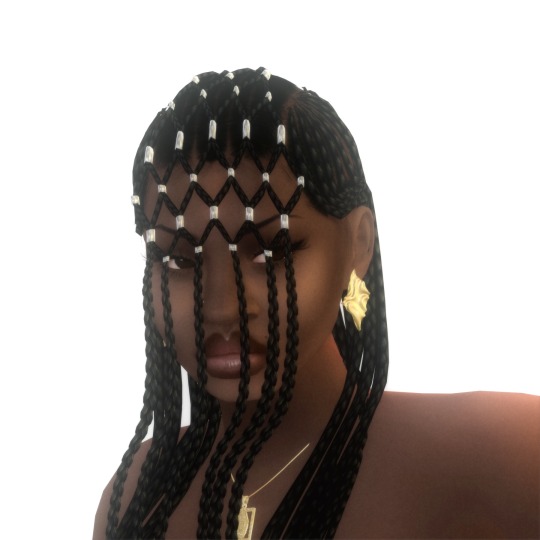
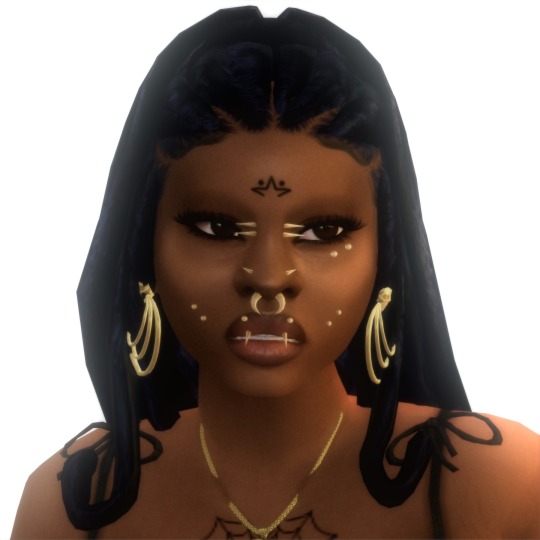
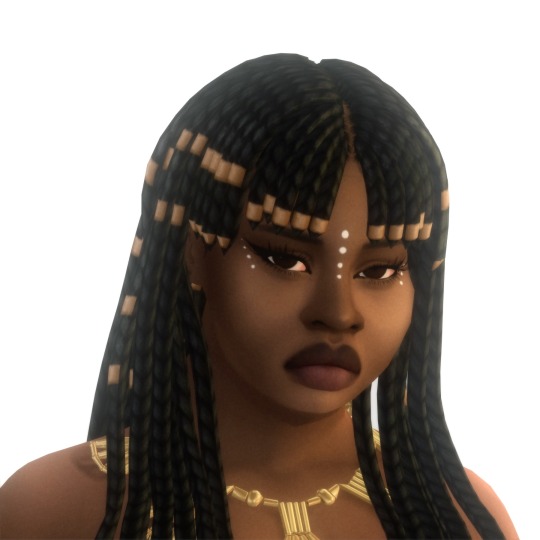
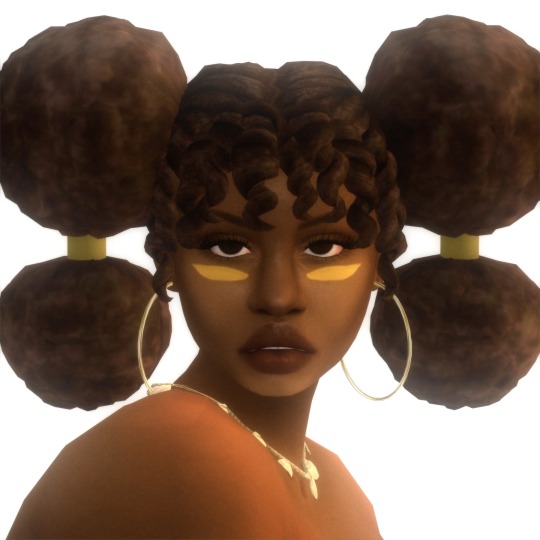
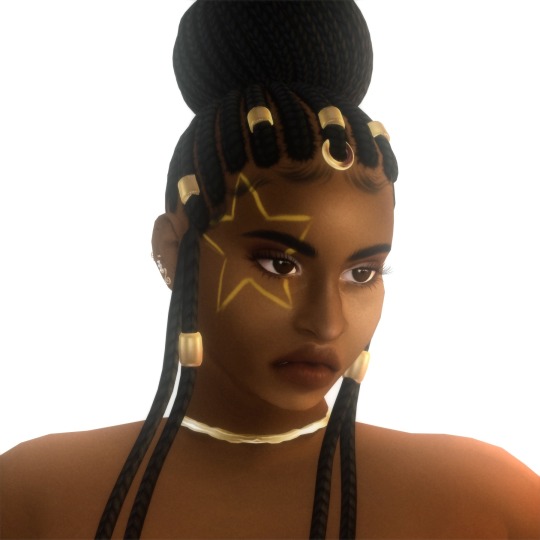
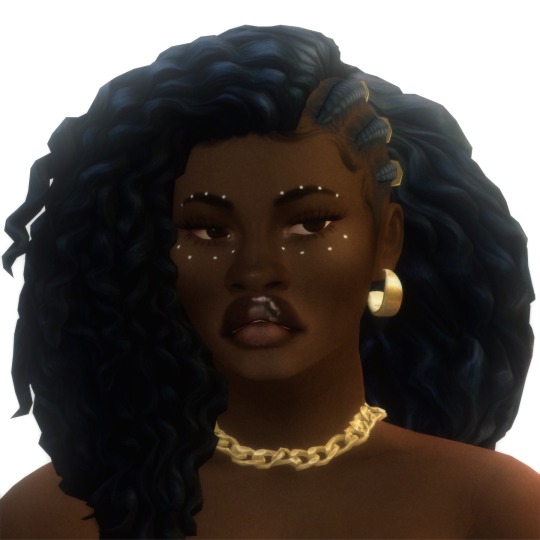
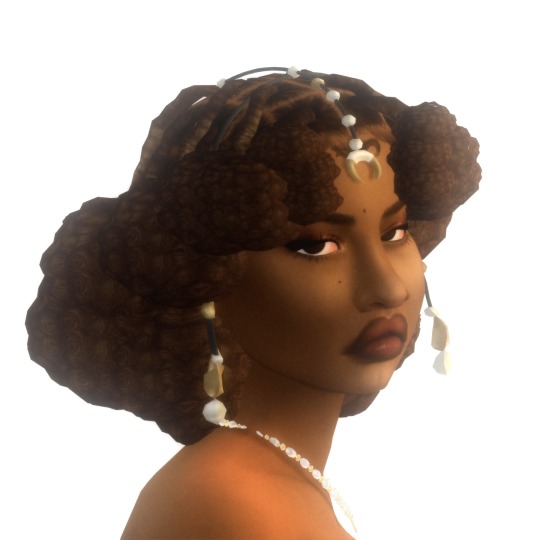
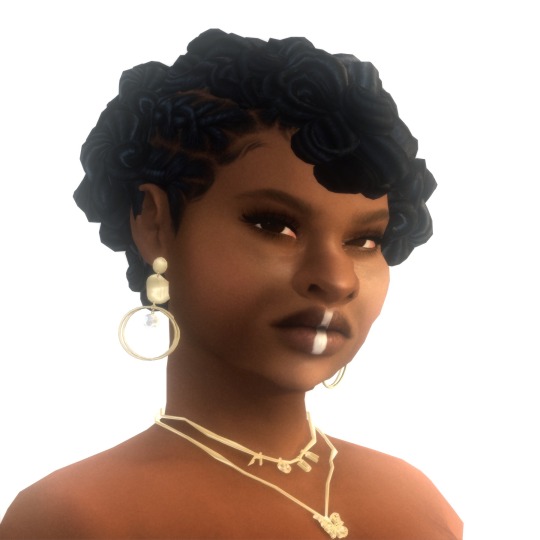
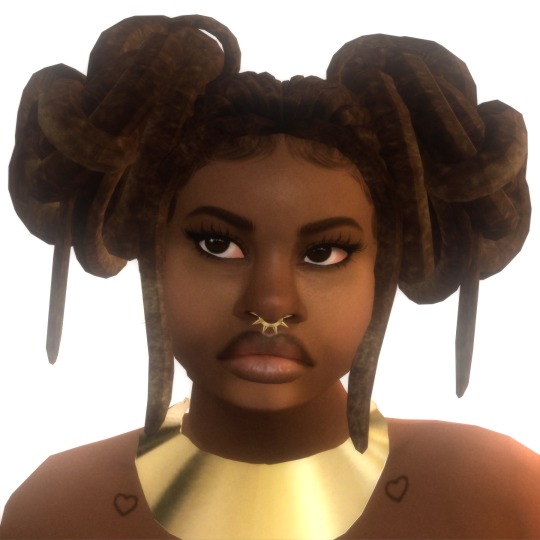
afrofuturism🪐
☆ one ~ solange hair by darknightt (tsr warning) ☆ two ~ loretta hair by @simtric ☆ three ~ bahati braids by @sheabuttyr ☆ four ~ isonoe hair by octetsica ☆ five ~ binah braids by @sheabuttyr ☆ six ~ cornrows & curls hair by @leeleesims1 ☆ seven ~ indie hair by @sashima ☆ eight ~ loc petals by @shespeakssimlish ☆ nine ~ mnemosyne hair by octetsica ☆
mini dedication essay to black simmers and ts4 creators below! pls read if you have the chance! <3
this edit is a small homage to afrofuturism and the various unique black hairstyles (and especially the black creators of most of these hairs) that i have downloaded and admired over the years! some of these are old and some of these are new.
to me, afrofuturism means constantly honoring/reclaiming/challenging the past while constantly creating/dreaming of a better society/world/future. a society/world/future that embraces and empowers all of our differences, ingenuity, aspirations, and unique lived/cultural experiences. a society/world/future that does not limit us through the various systems of marginalization and oppression (racism, homophobia, transphobia, fatphobia, sexism, xenophobia, ableism, classism, colorism, etc.) that often affects how we, as black people, live today.
blackness is so diverse and intricate yet it's always been a struggle to find my culture within a game that's known for being so limiting, bland, and extremely eurocentric when it comes to hairstyles, clothing, food traditions/events, etc. black simmers have always had to figure out how to make this game more inclusive and make it resemble either more like how our ancestors lived, how our current lives are, or how we would want our lives (and even our children's lives) to look like in the future no matter how dystopian the real world look and feel now. fortunately, these hairs and their uniqueness bring a huge sense of culture and style to this game. they have always inspired me and made me feel extremely proud to a part of the lovely african diaspora (and the ever-growing black simmer community).
in a way, being a black simmer and cc creator usually means that we are often digitally creating our own worlds as afrofuturists to varying degrees (whether we know it or not) every time we open our game, make our sims, make houses, and/or make black cultural cc. also, now i know that cc making is not easy to do and is extremely time-consuming so this post is also just me giving all black cc creators especially those who create for free their well-deserved flowers! here are some other black cc creators who created cc that have greatly impacted my game since i first started playing sims 4: @/leeleesims1 @/simtric @/hi-land @/yuyulie @/sims4bradshaw @/ebonixsims @/xmiramira @/sheabuttyr @/qwertysims @/oplerims @/sleepingsims @/shespeakssimlish and so many more im forgetting probably (im too shy rn to tag ppl but i greatly appreciate y’all fr i hope y’all telepathically get this message somehow 😭).
last but not least, i am hoping that this inspires somebody to keep creating or start creating regardless of what they think their skill level is! somebody will absolutely fall in love with your work and/or your art/work will 100% change someone's game forever <333
#ts4#sims 4#the sims 4#black simblr#black simmer#ts4 edit#🪐#🪐 black hair#soleil jones#xolani souza de oliveira#angela evans#leona morrison#chantelle diang#ayesha solomon#nylah rivers#nykhor chantelle diang#dove adeyemi#something to end black history month with!#i really hope my essay make sense 😭😭😭#i planned to this last year but hated the pictures i took so i scraped it and redid it#i couldn’t thank enough to all the black cc creators before me and hope to help/inspire new black cc creators 🙏🏾#this is also kinda the updated version of my for the culture post…i made sure to include some familiar (but updated) faces 😭☝🏾💗🙈
1K notes
·
View notes
Text
In my opinion, the radical feminist VS gender identity debate boils down to materialism vs dualism and feminism vs post modernism.
To explain:
Mind–body dualism, in essence, postulates that human beings have souls. It's a philosophy that denotes either the view that the mental is non-physical, or that the mind and body are distinct and separable. Therefore, one can be born male and have a female soul/spirit/essence/psyche/personality/identity. It is compatible with many religions and was promoted by famous philosophers and theologians (often both.) It is a form of spirituality.
On the other hand we have materialism. Radical feminism, marxism, socialism and communism come from materialism. Materialism can also be found in science, such as the theory of evolution.
Materialism is a form of philosophy which holds that all things, including mental states and consciousness, are results of material interactions of material things. Mind and consciousness are caused by physical processes in the body without which they cannot exist. It opposes spirituality and dualism and negates the concept of a soul. Therefore, there is no female soul inside of a man's body because there is no soul at all, female or male, only a body. That man's body is male because of its sex which means his personality and thoughts are that of a male.
The other conflict is between feminism and post modernism.
Post modernism, as a philosophy, postulates that there is no "truth" because everything is relative. There is no objective reality, just opinions, perspectives and thoughts. Nothing is real, because everybody is different. There are no facts, only viewpoints. Therefore, postmodern philosophers spend a lot of time discussing theory and abstract concepts instead of the material reality of class struggle and its consequences. Think of all the discussions about "identities", "what is a woman" and how to "feel empowered." In this world, sexism is something relative and abstract, something to talk about, not to fight. To quote Catharine MacKinnon: "students are taught that nothing is real, that disengagement is smart (not to mention careerpromoting), that politics is pantomime and ventriloquism, that reality is a text (reading is safer than acting any day), that creative misreading is resistance (you feel so radical and comfortably marginal), that nothing can be changed (you can only amuse yourself)." Post modernism is directly linked to individualism (a social theory favouring freedom of action for individuals over collective) and neo-liberalism (there is no public interest, only private interests) positioning itself against collectivism, class consciousness and class struggle, all core tenets of feminism.
Feminism is a political and materialistic movement that seeks to liberate women (radical feminism) or at the very least to improve the very real, very concrete, material lives of some women (liberal feminism). It postulates that men and women are social classes and that men are waging a war against women, and have been for centuries. The oppressors and the oppressed are clearly defined, it's not "relative", it's not a viewpoint, it's not "personal": it's historical, political and factual. Strategies and actions are used to free women from male supremacy (radical feminism) or to make said male supremacy more bearable (liberal feminism). In this movement, the idea of Woman the abstract concept or Woman the spirit/personality/soul in a body makes no sense and is considered misogynistic.
To summarize:
-> Trans activists believe that physical bodies are irrelevant or, at the very least, separate from the mind, that reality changes depending on how we think about it, and that women are a personality (and personalities are abstract concepts).
-> Radical feminists believe that women form a social class that is oppressed (even enslaved) by men precisely because of our physical bodies.
Those two positions are irreconcilable.
236 notes
·
View notes
Text
The victim-blaming of Jason Todd is such an ugly refutation of what his Robin was meant to stand for it’s depressing.
Worse yet the victim-blaming ultimately neither absolves Bruce nor works as a proper narrative patch for the hole his death left in the fantasy. If Jason wasn’t good enough to be Robin and Bruce’s greatest mistake was to give him the mantle, it’s still Bruce’s mistake for putting a vulnerable unprepared kid in the line of fire.
So now not only is the narrative making the ugly statement that actually, some people (*cough cough* poor and marginalized people) are not worthy of being empowered, and are better off keeping their head down than to try and make a positive impact, Bruce still looks like a total piece of shit.
I for one am comfortable with Bruce being a piece of shit. He’s a complex and flawed character etc etc. What I won’t stand for is Batman’s greatest mistake being believing in Robin; that condescending mess of a moral the story turned to. Bruce fucked up nine kinds of ways when he met Jason, but the one thing he got right was recognizing Jason’s worthiness to be a hero.
The child soldier issue is only an issue so long as we’re unable to articulate how it was Bruce’s continual failure to understand and provide for Jason’s needs as an individual and communicate with him, that created the precarious situation which lead to his death. (Bruce’s self-centerednsss leads to a teenager’s death twice after Steph.)
I don’t think it was an accident that Jason’s introduction included an arc where he found out Bruce hid his father’s death from him right as he officially became Robin. That was meant to be a wake-up call for Bruce. This boy isn’t Dick, he isn’t you. He doesn’t do this out of grief or out of anger. He is the will to do good given power, and to be his partner you must step outside of your own perspective.
#Jason Todd#I’ve been struggling to articulate this so J might remake this post later in a better way#that Jason’s Robin was never given much depth or consideration is I think indicative of how DC didn’t believe what he was meant to represent#anti Bruce Wayne#batsalt
344 notes
·
View notes
Text
Warriors for a Brighter Future: Eva and Estera's Fight Against Prejudice
Eva, a young woman with strong determination, had experienced a similar journey to Estera Stan. She too came from a Sinti and Roma family that had moved to Hannover in search of better opportunities and a brighter tomorrow. Her parents took the first step, and when Eva was six years old, the rest of the family followed.
It was a leap into an uncertain future, but Eva's parents had a dream: education and better opportunities for their children. Estera could empathize with this situation, as she too remembered the time when her family gathered the courage to seek a new home.
As time went on, Eva grew, shaped by the challenges but also the opportunities that the city of Hannover offered. She spoke Romanes with her family to maintain the connection to her culture and roots. Yet, there were moments when she felt uncomfortable. The "Z-word" at school was a constant companion, a painful reminder that not everyone accepted the diversity of the community.
Eva decided to make a change. She became active in organizations advocating for education and fighting against discrimination. Through workshops, she battled against prejudices and ensured that teachers and students better understood what Antiziganism meant.
The numbers confirmed what Eva experienced. More and more cases of racism against Sinti and Roma were being reported. But Eva didn't give up. She fought for a better future, for herself and for the community.
The path was not easy. Often, it felt like she was tilting at windmills. Yet, she knew she was not alone. In Hannover, there was a strong Sinti and Roma community standing together for their rights.
The Senate supported projects that promoted participation and anti-discrimination. It was a start, but Eva dreamed of more. She dreamed of a state treaty that would firmly anchor the rights of the community.
One day, while Eva was diligently working in one of the workshops organized by "Romatrial," she spoke with Estera about their dreams and challenges. Estera, with a smile on her face, said, "Eva, you truly are an inspiration. I admire how you advocate for our community."
Eva responded with a warm smile, "Thank you, Estera. It's important that we stick together and fight for our rights. Together, we can achieve a lot."
A few weeks later, at a meeting of "Romaniphen," Eva heard a young Roma student share her experiences at school. The student, with a touch of determination in her voice, said, "It's hard to feel strong sometimes when you feel misunderstood. But through workshops like these, I feel empowered to stand up for myself."
Eva nodded in agreement and said, "You are not alone. We are here to support you. Together, we can make a difference."
As the discussion turned to the rising cases of Antiziganism, Eva became serious. She said, "It's regrettable to see the numbers increase. But that also means we need to do more to educate and fight."
Estera, sitting beside her, added, "We need to raise our voices and stand against prejudices. It's time for our community to be heard."
In the following months, Eva and Estera continued their efforts, inspired by the stories and experiences of their fellow fighters. They knew the road was still long, but they firmly believed that together, they could create a better future.
Eva knew the road was still long. But she believed in change. She believed that, together with others, she could make a difference. And so, she continued her fight, inspired by Estera and all those who believed in a better future.
#Roma Activism#Antiziganism Awareness#Education Advocacy#Discrimination Fighting#Community Empowerment#Sinti and Roma Rights#Cultural Heritage Preservation#Hannover Integration#Diversity Acceptance#Empowering Marginalized Communities#State Treaty Advocacy#Youth Empowerment#Prejudice Combat#Inclusivity Promotion#Empowering Future Generations
1 note
·
View note
Text
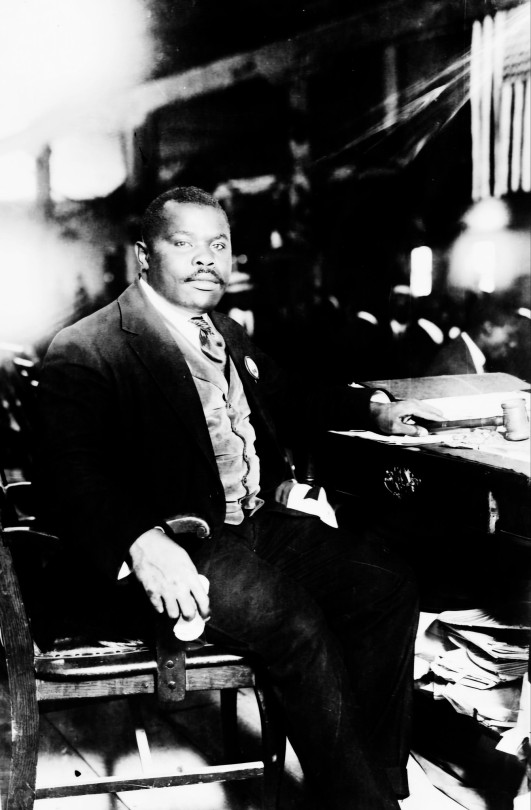
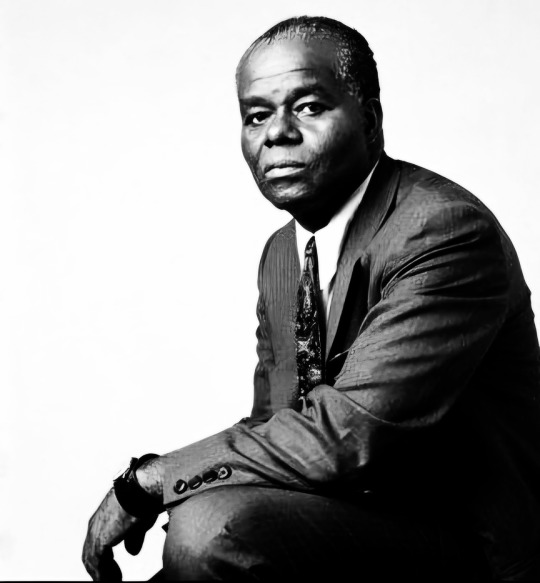
Why Dr. John Henrik Clarke Is Correct About Black People Having No Friends (and why We Don’t Need Any) – a Garveyite Perspective
Dr. John Henrik Clarke famously stated, “Black people have no friends.” For many, this may sound harsh, but it is a sobering truth when viewed through the lens of Pan-Africanism and Marcus Garvey’s philosophy. Garvey understood that Black liberation can not depend on external allies; it must come from within—rooted in self-reliance, unity, and a shared commitment among Black people globally.
Here’s why, Dr. Clarke’s statement rings true and why, from a Garveyite perspective, Black people don’t need friends—only each other.
1. History Proves It
From colonialism to the civil rights era, supposed "friends" of Black people have repeatedly betrayed or abandoned us. Other groups have leveraged Black struggles for their own gains, only to leave Black people behind once their goals were achieved.
Post-slavery labour movements excluded Black workers.
Civil rights coalitions saw other groups gain rights, while Black people remained trapped under systemic racism.
Garvey and Clarke both saw these betrayals as evidence that Black people must prioritize their own interests and stop relying on others.
2. Global Anti-Blackness Is Real
Anti-Blackness isn’t confined to one region—it’s a global phenomenon. Across continents, Black people face systemic oppression, discrimination, and dehumanization.
Other groups often form alliances to protect their own power while marginalizing Black voices.
Even in spaces of shared oppression, anti-Blackness often takes precedence.
Dr. Clarke’s assertion and Garvey’s vision both point to this truth: Black liberation must come from within because no one else will prioritize us.
3. Dependency Leads to Exploitation
Depending on outside "friends" or "allies" often comes with hidden costs. Foreign aid, alliances, and solidarity movements often prioritize the interests of others over Black liberation.
Aid to African nations often perpetuates dependency rather than fostering self-sufficiency.
"Allies" in social justice movements often centre their struggles, leaving Black people to fight alone.
Garvey warned that dependency breeds vulnerability. Clarke reinforces this: Black people must build their own systems to avoid exploitation.
4. We Have Everything We Need
Garvey believed that Black people possess the resources, talents, and ingenuity needed for liberation.
Africa’s wealth: With its vast natural resources, Africa can fund global Black empowerment if reclaimed from exploitative systems.
Diaspora talent: Across the globe, Black communities excel in innovation, creativity, and resilience.
Dr. Clarke’s statement echoes Garvey’s vision: We don’t need friends because we already have all the tools for success.
5. Cultural Exploitation Is Proof of No True Friendship
Black culture—music, art, fashion, and more—is celebrated globally, but Black people are rarely compensated or empowered by their own creations.
Other groups profit from Black innovation while perpetuating anti-Black systems.
Cultural exploitation demonstrates a lack of true solidarity.
Garvey’s solution: Black people must reclaim their culture and use it as a tool for empowerment, not exploitation.
6. Unity Is Our Greatest Strength (and Threat to Oppressors)
A united global Black community is the most powerful weapon against systemic oppression. Garvey emphasized unity, and Clarke’s assertion underscores why others fear it:
A unified Black world challenges global power structures that thrive on division.
By focusing on internal unity, Black people strengthen themselves and disrupt oppressive systems.
7. Allies Often Divide Us
Alliances can create divisions within Black movements, as external influences pit factions against each other or dilute the focus on Black liberation.
During the civil rights movement, alliances often marginalized more radical Black voices.
Today, funding from external groups can cause conflicts between grassroots Black organizers and larger organizations tied to outside agendas.
Garvey’s emphasis on self-reliance offers a solution: Black unity must come first, free from outside interference.
8. Other Groups Prioritize Their Own Interests
Every group prioritizes its own survival and progress—it’s not wrong, but Black people must learn from this.
White nations maintain global alliances to uphold their dominance.
Asian nations focus on economic self-sufficiency.
Jewish communities have built strong networks to protect and uplift their people.
Garvey and Clarke would agree: It’s time for Black people to do the same and put themselves first.
9. Historical Success Through Self-Reliance
History proves that Black people thrive when they rely on themselves:
The Haitian Revolution succeeded because enslaved Africans united and rejected external dependence.
Garvey’s UNIA (Universal Negro Improvement Association) built businesses, schools, and a global movement without outside help.
These examples show that self-reliance works. Black people don’t need friends—they need focus.
10. True Liberation Is Self-Determined
Liberation can not be outsourced, gifted, or borrowed—it must be self-determined. Allies may help temporarily, but no one will prioritize Black liberation over their own interests.
Garvey envisioned a world where Black people controlled their own economies, politics, and resources.
Clarke’s assertion reminds us that we can’t afford to waste time seeking validation or support from others.
11. Black Liberation Threatens Global Power Structures
Both Garvey and Clarke understood that Black liberation isn’t just a struggle for freedom—it’s a direct threat to the systems of power that dominate the world.
A free and united Africa would undermine Western economic dominance, which relies on exploiting African resources.
A globally empowered Black diaspora would disrupt industries, politics, and systems built on anti-Blackness.
This explains why no other group can truly be a friend to Black liberation. Their survival often depends on maintaining the status quo that oppresses us.
12. “Allies” Often Centre Themselves in Our Struggles
Even when other groups claim to stand in solidarity with Black movements, their involvement often centers their own experiences, narratives, and priorities.
Non-black allies frequently shift attention to their struggles, leaving Black people to carry the burden of fighting for everyone else.
Movements like Black Lives Matter have seen external groups co-opt their messages for personal or political gain.
Garvey’s philosophy reminds us to stay focused on our own goals and not allow our movements to be hijacked.
13. Romanticizing External Help Distracts from Pan-African Solutions
One of the pitfalls of seeking allies is the belief that external help is necessary or even superior. This mindset can prevent Black people from exploring Pan-African solutions.
Garvey’s vision of “Africa for Africans” called for African nations and the diaspora to work together without relying on foreign nations or systems.
Clarke’s statement reinforces this idea: the best solutions come from within. Black people don’t need external friends—they need internal unity.
14. Allies Often Maintain Anti-Black Systems
Even so-called “progressive” allies often uphold the same systems that oppress Black people.
Corporations claiming to support racial justice continue to exploit African resources and labour.
Governments speaking out against racism still engage in policies that harm Black communities worldwide.
Dr. Clarke and Garvey both understood this hypocrisy. Real liberation requires rejecting systems that perpetuate oppression, even if they claim to support us.
15. Our Focus Should Be on Building Future Generations, Not Pleasing Others
Garvey often emphasized the importance of preparing future generations to lead and succeed independently.
Clarke’s warning about having no friends reinforces this: Why waste time seeking allies when we could be building schools, economies, and systems that empower our children?
A Garveyite perspective prioritizes creating a legacy of self-reliance and leadership that ensures the survival and progress of Black people globally.
By focusing on the future, Black people can stop relying on the approval or assistance of others and instead secure their own destinies.
Final Reflection: All We Have Is Us, and That’s Enough
Dr. John Henrik Clarke’s statement and Marcus Garvey’s philosophy both lead to the same conclusion: Black people must take responsibility for their liberation. True freedom can not and will not come from allies—it must come from within. The power lies in our hands, in our unity, and in our shared commitment to self-determination.
We don’t need friends. We need ourselves.
#marcus garvey#Dr John Henrik Clarke#Garveyism#pan africanism#self reliance#No Allies#black unity#black liberation#Anti Blackness#economic independence#black people#black history#black#black tumblr#blacktumblr#black conscious#africa#black power#black empowering#black future#Global Black Community#black leadership#african diaspora#black diaspora#black culture#african culture#people of color#POC
314 notes
·
View notes
Text
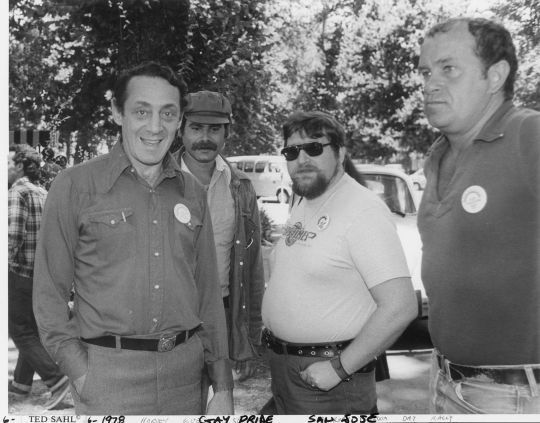
🌈 Today, we celebrate Harvey Milk Day, honoring the life and legacy of one of the first openly gay elected officials in the United States. Harvey Milk's tireless activism and unwavering commitment to equality paved the way for countless LGBTQ+ individuals to live openly and proudly. His courage to speak out and advocate for marginalized communities continues to inspire and empower us to this day.
Image: Harvey Milk at Gay Pride San Jose, June 1978. Via Wikimedia Commons.
442 notes
·
View notes